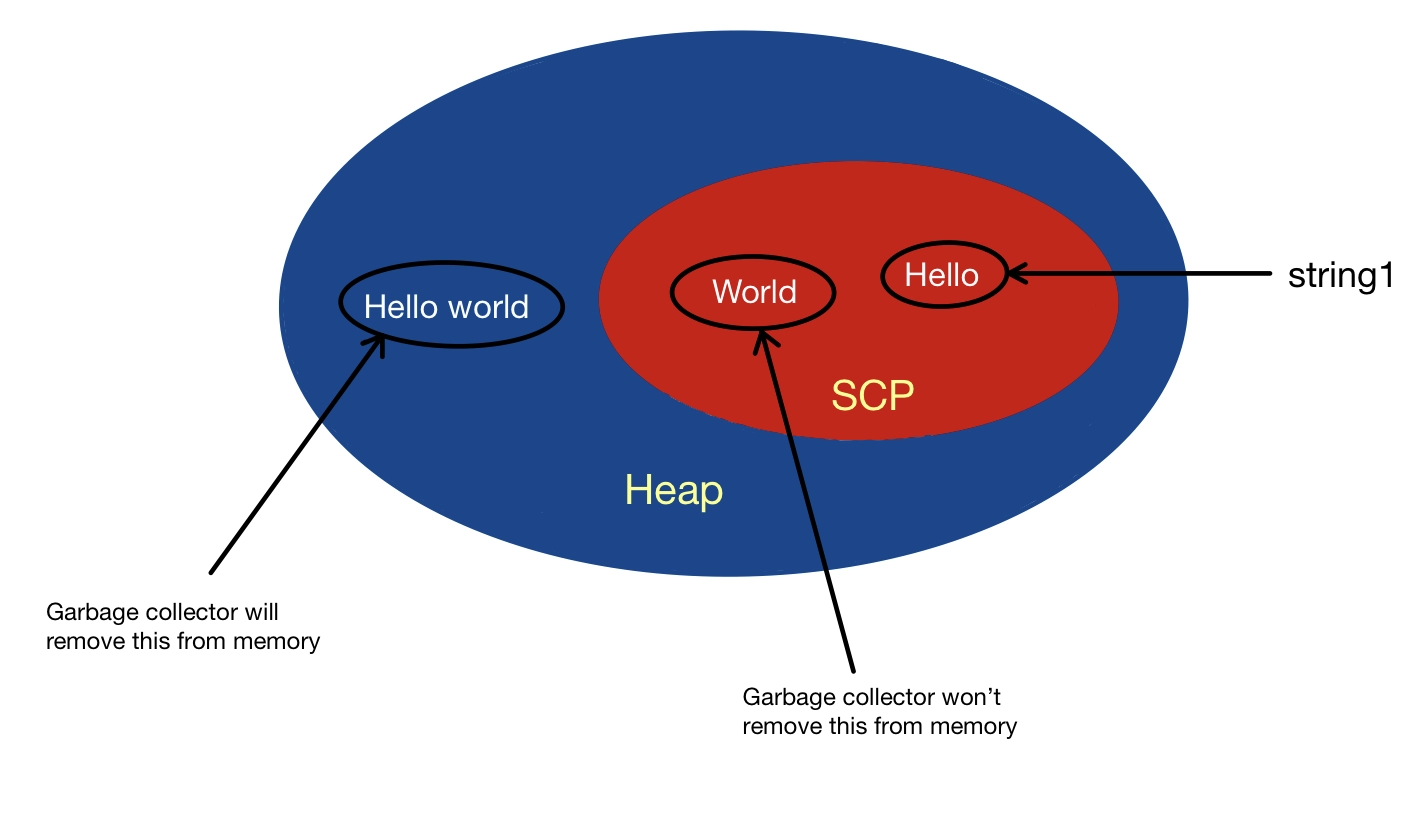Discovering the Advantages of Unalterable Strings in Modern Shows Paradigms
In the realm of modern shows standards, the idea of immutable strings stands as a keystone of durable software growth. By embracing unalterable strings, designers can ensure boosted data integrity, enhanced string safety, streamlined debugging processes, increased protection steps, and effective performance optimization.
Boosted Information Integrity

By avoiding the alteration of string things, immutability gets rid of the risk of unintentional modifications to the information they hold. This not just enhances the security of the information yet additionally improves the reliability of the code that counts on these strings.
Immutability likewise sustains much safer multithreading environments, as simultaneous accessibility to immutable strings does not position the risk of data corruption via simultaneous alterations. This property streamlines the procedure of dealing with strings in identical programming circumstances.
Essentially, immutability works as a protective shield around the data kept within strings, improving their honesty by guaranteeing that as soon as defined, their values stay the same throughout the program's execution.

Boosted String Safety
Immutable strings boost the string safety and security of programs by making sure that once a string item is produced, its worth can not be modified. This home gets rid of the threat of concurrent threads attempting to customize the very same string simultaneously, which can lead to data corruption or inconsistent states in the program - Why are strings immutable in Java?. In a multi-threaded setting, where several threads accessibility and manipulate data at the same time, the immutability of strings provides a degree of security by assuring that the information continues to be the same throughout its lifecycle
Streamlined Debugging Procedures
Offered the enhanced thread safety helped with by unalterable strings, a considerable benefit emerges in the world of streamlined debugging processes. Immutable strings, when produced, can not be changed, making it simpler to map the circulation of information and identify the source of bugs in a program. This immutability guarantees that strings stay constant throughout the implementation of the program, reducing the possibility of unexpected changes that can result in errors.
When debugging with mutable strings, developers usually come across issues where a string's value is modified accidentally, making it challenging to pinpoint the root cause of a bug. However, with immutable strings, the information continues to be the same, permitting developers to concentrate on examining the real reasoning of the code instead than locating where and when a string was modified inaccurately.
In addition, immutable strings simplify the debugging process by allowing much easier reproduction of insects. Given that immutable strings do not transform state, programmers can recreate and examine pests better, causing quicker identification and resolution of concerns within the codebase. This streamlined debugging process eventually adds to higher software application top quality and enhanced general development efficiency.

Enhanced Protection Procedures
Enhancing data defense and fortifying system integrity, the application of immutable strings in software application applications adds considerably to raised protection actions. Unalterable strings, as soon as produced, can not be customized, giving a vital defense against harmful tampering or unapproved gain access to. By ensuring that delicate data kept in strings stays unchanged throughout the program's implementation, the danger of data breaches or shot strikes is significantly minimized. Why are strings immutable in Java?. Immutable strings also play an essential function in preventing go to my site typical security vulnerabilities such as barrier overflows and SQL shot attacks, as efforts to adjust string data at runtime are inherently limited.
Furthermore, the immutability of strings enhances the predictability of program behavior, making it much easier to validate inputs and prevent unforeseen adjustments that could endanger security. This predictability simplifies the process of bookkeeping and validating code, making it possible for designers to recognize potential security loopholes better. Overall, including immutable strings into software program advancement techniques not only improves the robustness and integrity of applications yet likewise enhances their strength versus security hazards.
Effective Efficiency Optimization
When dealing with mutable strings, operations like concatenation or substring development frequently result in the production of brand-new string things, leading to memory expenses and boosted processing time. By permitting strings to remain unchangeable and constant, immutable strings help with better memory management and caching chances, ultimately improving the total effectiveness of the software application.
Because unalterable strings can not be modified as soon as created, they can be shared across threads without the risk of helpful hints unexpected adjustments, decreasing the requirement for synchronization mechanisms and enhancing concurrency. Immutable strings simplify debugging procedures as developers can trust that a string's worth will remain regular throughout the program's implementation, eliminating possible mistakes created by mutable state modifications.
Verdict
In verdict, the benefits of using immutable strings in modern-day programs paradigms can not be overemphasized. Improved data stability, improved string safety, simplified debugging procedures, increased safety steps, and effective efficiency optimization all add to the total performance of programs jobs. By integrating unalterable strings right into programs methods, designers can profit from an extra durable and reliable codebase.
Immutability, a crucial feature of strings in programming languages such as Java and Python, makes certain that once a string item is produced, it can not be modified or changed.Unalterable strings boost the thread safety and security of programs by making certain that once a string item is created, its value can not be customized. Immutable strings also play a crucial role in protecting against common security susceptabilities such as barrier overflows and SQL injection attacks, as attempts to control string data at runtime are inherently limited.
By permitting strings visit to stay continuous and unchangeable, unalterable strings help with far better memory monitoring and caching opportunities, eventually boosting the overall effectiveness of the software program.
Immutable strings simplify debugging processes as programmers can trust that a string's value will certainly remain regular throughout the program's execution, removing prospective mistakes caused by mutable state changes.